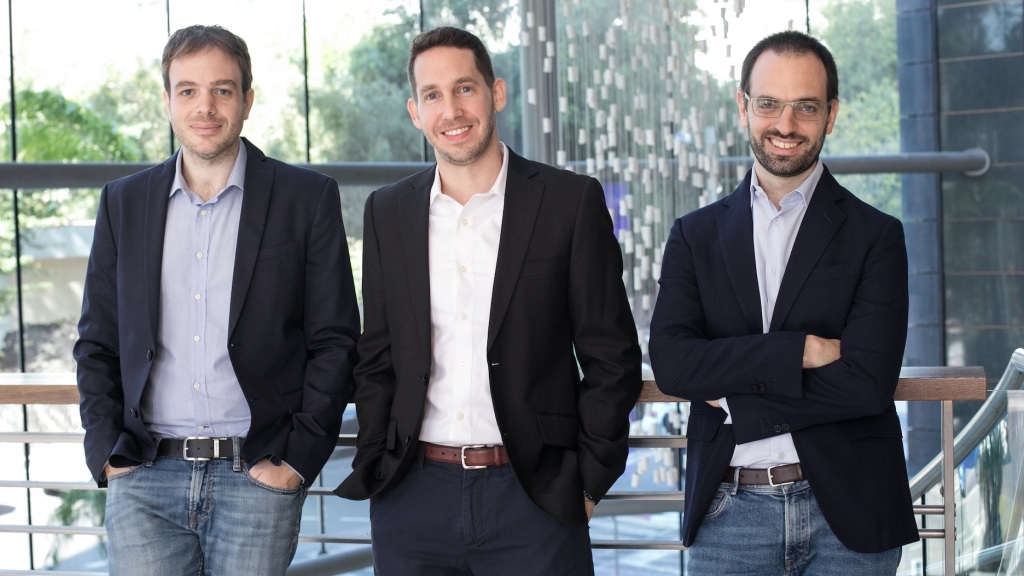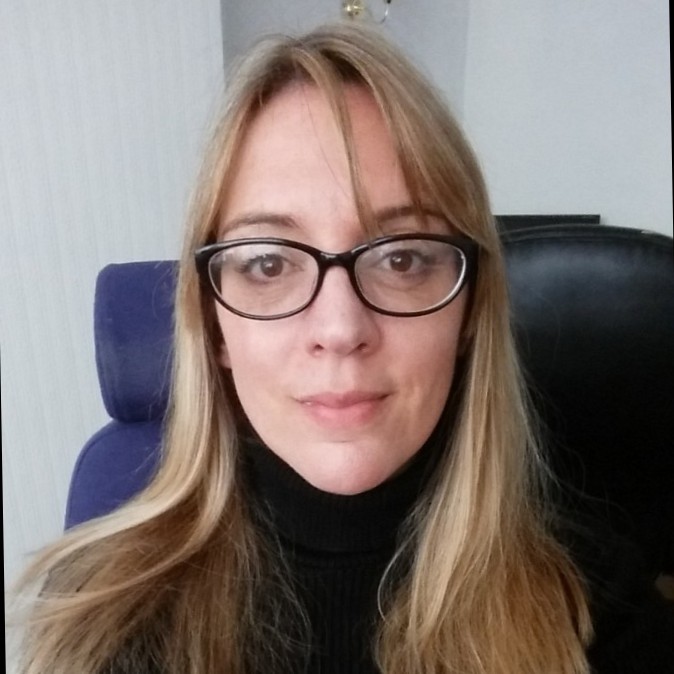Her responsibilities involve managing relationships with the cyber markets, introducing new carrier relationships, and launching new products in the marketplace
Unni handles everything from helping carriers go to market to negotiating commercial contracts with them, and she’s also played a key role in expanding Sayata’s product offering to new lines, like business owners’ policies and general liability. Currently, these lines have been launched to a subset of existing Sayata customers, with plans to expand distribution and add more lines in the future.
Tell us about your journey into insurance
I spent 11 years at McKinsey before Sayata. I specialised in advising insurance companies, particularly in digitising their operations and distribution methods. I traveled the world advising different carriers implementing digital. I spent a lot of time in the space and eventually wanted to try implementing these ideas myself.
Sayata was a company that I had been following for a few years. It initially started as a cybersecurity tool aimed to help carriers identify disproportionate risks. It soon evolved into a marketplace for wholesalers and insurers, which I found to be a brilliant and necessary idea. The company achieved significant success in the cyber insurance marketplace by addressing a major pain point for brokers and their agent partners, especially in a challenging market.
How did your background contribute to the decision?
I had been advising insurance companies, and this, coupled with the success I observed at Sayata, made it a compelling opportunity. I knew the CEO from business school, so there was an element of trust, and the timing felt right to transition from advising to actively participating in building something new.
I was initially hired to manage insurance carriers, but my role quickly evolved to leading product expansion. The dynamic environment means dealing with changing problems every day. It’s a different kind of growth compared to McKinsey; at Sayata, rapid, daily decision-making is necessary to lead the company in new directions, and you feel ownership over not just coming up with the ideas, but achieving the outcomes.
One of the things I love most about the job is the constant evolution of the role and the ability to make impactful decisions that are both empowering and somewhat daunting. The journey has been fascinating, and the fast-paced environment keeps me engaged.

Your role seems to require you to be outside your comfort zone a lot. How do you manage that?
I had no idea how much my comfort zone would expand as a CCO. But sometimes, if you know too much, you don’t make the leap. It’s a bit like parenting — the exhaustion of that first year is indescribable. Would you choose it, if you knew exactly how exhausted it would be? Nobody warns you.
Honestly, I’m glad they didn’t, because what would be the point? You can’t change the journey, so you might as well jump in feet first. You’re completely shocked at first, but then quickly you realise you’re going to survive it. You have to. This has undoubtedly helped me build a lot of resilience.
How has this journey influenced your role in the ever-changing Insurtech market?
With the insurtech market’s choppiness, resilience is key. Luckily, our leadership had foresight—raising substantial funds without overgrowing the company. We’ve managed growth carefully, making thoughtful hires since the series A. So we’re in a fortunate position where we are not forced to raise money in a very tough macroeconomic environment. I deeply respect my CEO and am learning a lot from him. We’re in a position to experiment and try new things because we have the runway to do that, which is invaluable. I’ve also seen the importance of working with incumbent carriers in the insurance industry, addressing the need for change.

Sayata is an Israeli/American company, so what’s that been like given recent events?
Half of our company is based in Israel, and we’re essentially continuing business operations in the midst of an unforeseen war. The level of growth as a leader that has been thrust upon me has been remarkable. It’s been a bit exhausting, but incredibly rewarding. Leading in a time like this, where decisions have significant consequences, has provided me with a unique perspective on leadership.
It’s certainly a challenging time, especially with a significant number of our team members called into military service for a period of time. It’s a nerve-wracking situation for us and for them, and we have been very lucky that they have so far come home safely. However, what stands out to me is the impressive resilience and attitude of our Israeli colleagues. They genuinely embody a “keep calm and carry on” spirit. Despite the upheaval, emotional trauma, and other challenges, they continue to work with remarkable dedication. It’s truly inspiring.
The challenges are multifaceted, from the emotional toll to the logistical complexities of operating in a conflict zone. Yet, what I find most impressive is the unwavering dedication to our clients and customers. Our colleagues overseas are the driving force behind the decision to keep moving forward. They remind us that, despite the shock many of us on the American side may feel, we need to keep moving forward. We have obligations to our clients and customers, and our focus remains on improving our products and swiftly bringing new offerings to the marketplace.
Being in a position where you’re making critical decisions and living with the consequences has given me a deeper understanding and empathy for the challenges leaders face. When I used to advise clients, I didn’t have the same level of empathy that I do now. Long term, this experience has provided me with invaluable insights into the tradeoffs organisational leaders are regularly faced with and helped me build the necessary empathy to connect with others on a profound level. It’s an experience that, in retrospect, I wouldn’t trade for anything.
Sayata has undergone strategic growth since its Series A, and it seems to have been a carefully managed process. Can you share insights into your approach to growth and the impact it has had on your current position in the market?
We’ve been meticulous in our approach to growth, making thoughtful hires and managing expansion carefully since our Series A. Fortunately, this approach has positioned us well, especially considering the current interest rate environment, which can be challenging for many startups seeking funding. Our CEO’s strategic decisions and foresight have been instrumental, and I am constantly learning from his leadership. We are fortunate to have the flexibility to experiment and try new things due to the solid runway we have established.
Working with incumbent carriers has been an interesting aspect of our business model. In my observation, many incumbents tend to adopt a “wait and see” approach when it comes to embracing new technologies. Understandably, the insurance industry is inherently risk-averse, and digital innovation requires a willingness to try and potentially fail. This presents a challenge for startups, as incumbents may be hesitant to break away from established practices. But it only takes a few forward-thinking partnerships to prove out a thesis – and that’s quite exciting for us. We’ve been lucky to find several established insurers who have been terrific partners to Sayata.
What challenges do you see in the insurance industry’s adoption of emerging technologies, particularly generative AI?
The industry’s adoption of emerging technologies, such as generative AI, faces hurdles. Many incumbents are cautious and may only consider such innovations once they’ve been proven by newer, more innovative companies. There’s a rush to claim adoption of generative AI, but the real transformation may come from innovative startups that identify valuable use cases. Skilled technologists may be hesitant to join incumbent carriers due to the challenges of bringing about change in such environments.
In my opinion, the real difficulty lies in determining where the return on investment will be most significant – and how many human behavioral changes are needed to see that impact on the bottom line.
I think one unlock lies in the ability to efficiently guide small business owners in understanding their coverage needs. Currently, many lack clarity on what coverage suits their specific ventures, such as a food truck or a fitness gym. The future, in my perspective, involves leveraging data and AI to provide tailored recommendations for coverage based on factors like claim frequency and potential losses. This shift from anecdotal sales processes (‘my other clients usually opt for this coverage at this level’) to data-driven insights could be revolutionary for both customers and insurance carriers.
One power lies in the ability to generate customised reports automatically. Imagine inputting a few data points about a business and instantly receiving comprehensive recommendations on coverage levels across various policies. This shift towards data-driven insights could replace the current sales processes that rely on anecdotal experiences. It has the potential to be a game-changer in distribution and growth for the industry.
While the human touch remains crucial in the insurance business, technologies like AI can significantly enhance efficiency in back-office operations. Automating tasks, improving processing speed, and streamlining workflows are safe and practical uses of these technologies. The impact on the bottom line might be more immediate in the back office, but the transformative influence is less pronounced compared to customer-facing solutions.
Shifting gears, as a C-level executive, what’s your perspective on diversity within the insurance industry, particularly regarding women in leadership roles and the overall cultural landscape?
While there are a decent number of women in the insurance industry, there is still a notable absence of women in leadership roles, especially within the insurtech space. The challenge seems circular—fewer women at senior levels mean fewer launching their own ventures (given the powerful network and funding required to do so). The traditional nature of the industry, with its emphasis on relationships built over golf and steak dinners, can be a barrier to junior women looking up and seeing what kind of lifestyle is required to be a leader in the space. I know many companies are individually trying to improve diversity, but some cultural change around how business gets done likely needs to happen before metrics improve in a remarkable way.
Unfortunately, diversity in terms of race, especially regarding Black and Latino representation, lags significantly behind female representation in insurance. The industry is still predominantly white, with limited representation from other races. We need greater efforts to attract a more diverse talent pool and create an environment that fosters inclusion and opportunities. I’m hopeful that this will change significantly in my lifetime – as the demographics of our country continue to change, I expect the diversifying client base will expect to see more service providers (like insurance agents and carrier representatives) who come from a similar cultural backgrounds to themselves.
Looking ahead, what can we expect from Sayata over the next 12 to 18 months?
The primary focus for Sayata in the coming months is expanding our expertise beyond cyber insurance. We’re incubating solutions for other small business insurance lines, such as business owners’ policies and general liability. This move aims to position Sayata as a multi-line destination, offering a range of solutions to different sizes and types of insureds, ultimately adding significant value to our clients and partners. We also see a lot of value being created from a data analytics perspective.
What inspires you about the current insurtech landscape and the founders driving innovation?
It’s truly remarkable to witness the continuous influx of new startups and founders diving into the insurtech arena. We’re not talking about the early days; this is more like insurtech 3.0, with several waves of booms and busts in the industry. What stands out is the resilience and determination of these founders. Despite past challenges and failures in the insurtech realm, new entrepreneurs are undeterred.
They study the space, learn about insurance intricacies, and boldly declare, “I’m going to disrupt this industry with a fresh, innovative approach.” The challenges to achieving that are not as unknown as they used to be, but the fact that founders still take the leap, armed with passion and belief, is inspiring.
Interview by Joanna England

Joanna England is an award-winning journalist and the Editor-in-Chief for Insurtech Insights. She has worked for 25 years in both the consumer and business space, and also spent 15 years in the Middle East, on national newspapers as well as leading events and lifestyle publications. Prior to Insurtech Insights, Joanna was the Editor-in-Chief for Fintech Magazine and Insurtech Digital. She was also listed by MPVR as one of the Top 30 journalist in Fintech and Insurtech in 2023.








